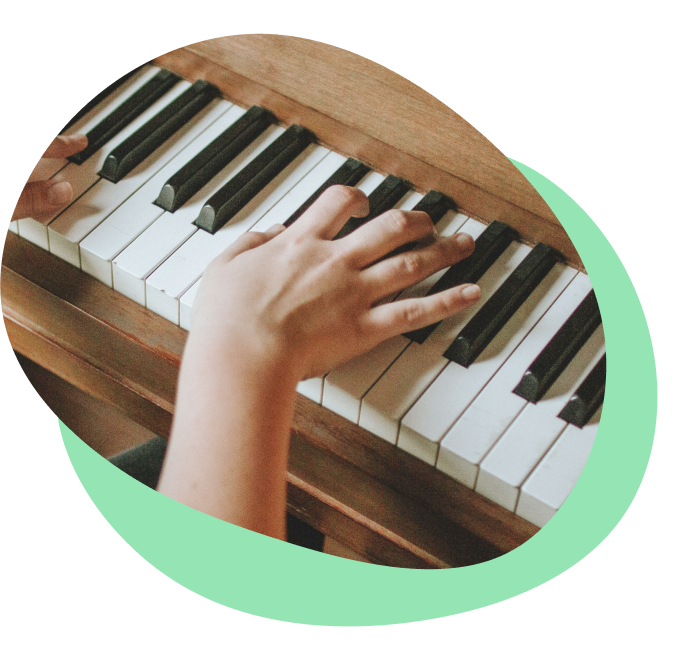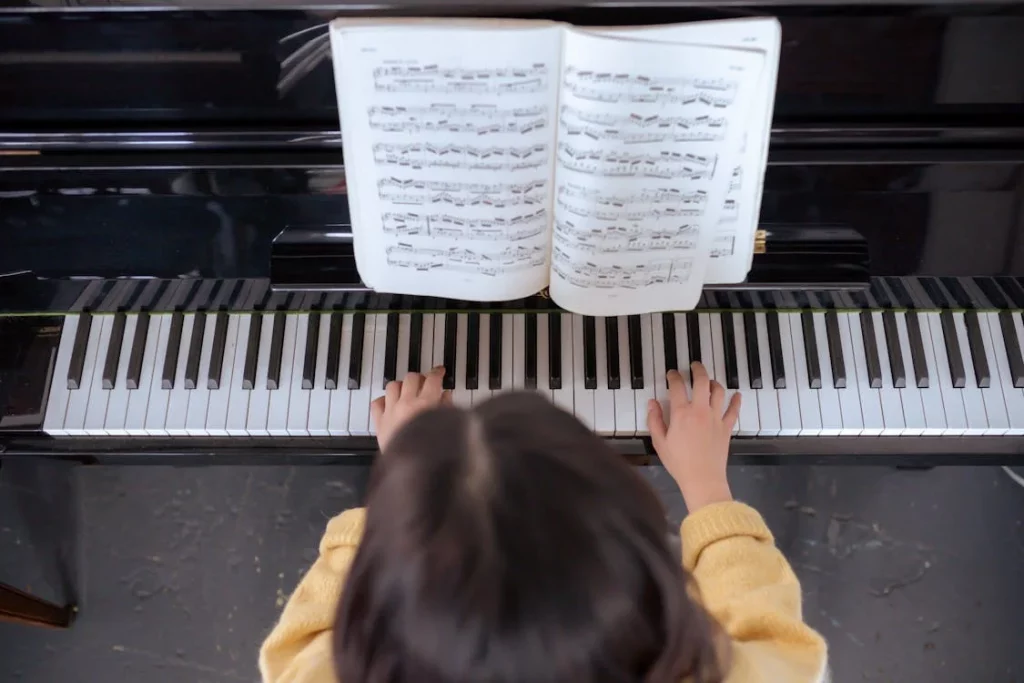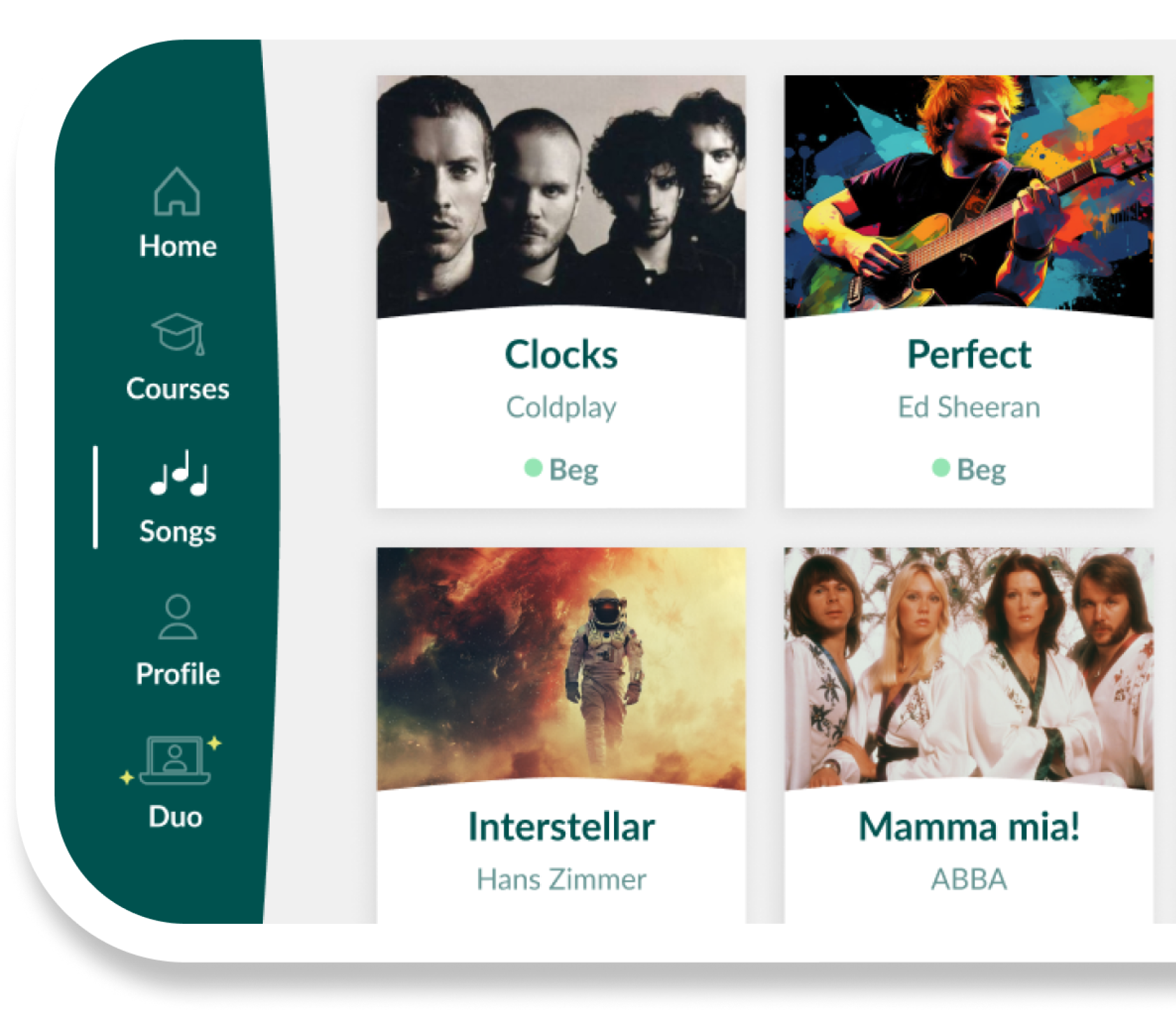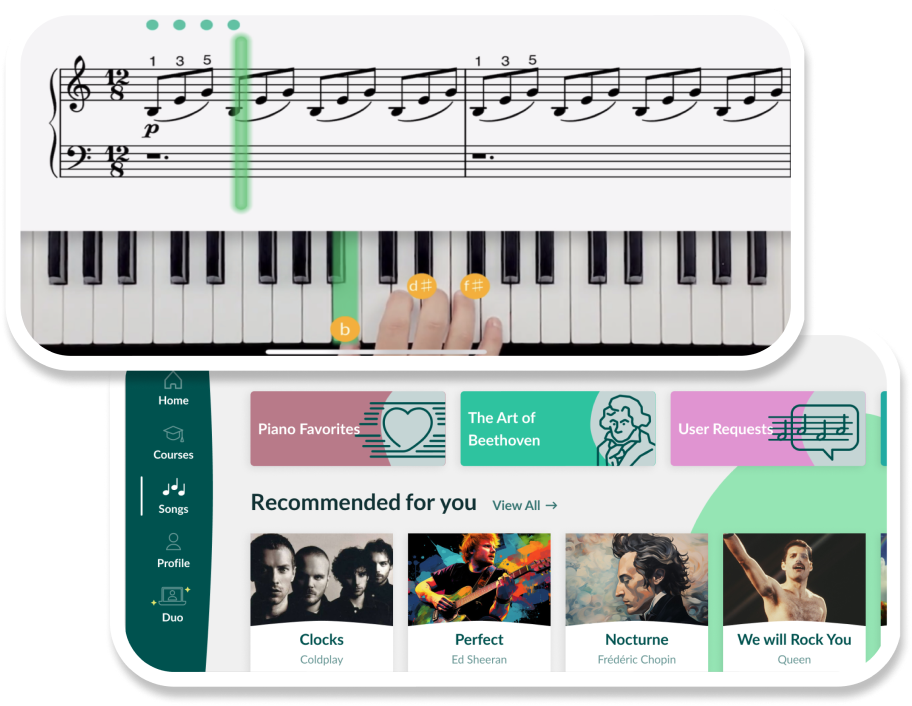Music is often described as the universal language, capable of conveying emotions and feelings beyond the limitations of spoken words.
In piano performance, this sentiment is particularly evident, as the pianist’s ability to express musical feeling can significantly impact the interpretation and delivery of a piece.
The role of musical feeling in piano performance cannot be overstated, as it forms the essence of the connection between the performer, the instrument, and the audience.
Understanding musical feeling
Music is not just a mere arrangement of notes and rhythms; it’s a language that conveys emotions and stories. In piano performance, the role of musical feeling is paramount, as it breathes life into compositions and connects the performer with the audience.
Musical feeling encompasses a wide spectrum of emotions, ranging from joy and excitement to melancholy and introspection. It involves the interpretation of musical elements such as dynamics, tempo, phrasing, and articulation, imbuing them with personal expression and interpretation.
The essence of musical feeling in piano playing
Musical feeling in piano performance is the pianist’s ability to express the emotional content of a piece through touch, dynamics, and tempo. It’s the difference between a technically perfect rendition and a performance that resonates with the soul. A pianist’s movements are not just mechanical actions but are imbued with intention and emotion, which are fundamental to the music-making process.
While technical proficiency is undoubtedly crucial in piano performance, it is the ability to convey and evoke emotions through music that elevates a performance from mere execution to a captivating artistic experience.
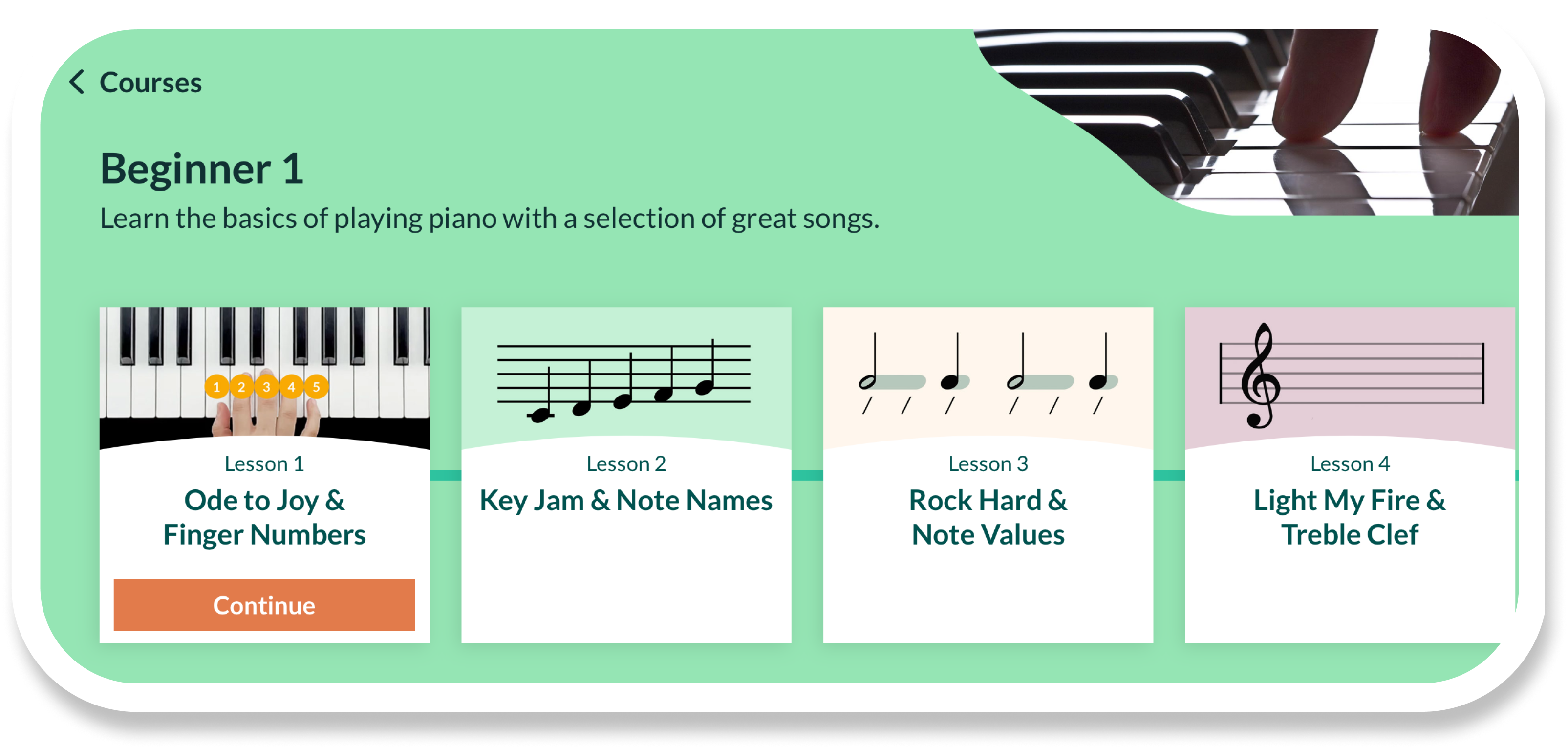
Benefits of musical feeling in piano performance
1. Emotional connection
Musical feeling fosters a profound emotional bond between performer and audience, transcending language barriers to communicate universal emotions. Through nuanced expression, such as dynamics and phrasing, performers evoke joy, sadness, or passion, creating a shared emotional experience.
2. Expressive interpretation
Musical feeling allows pianists to infuse their interpretations with authenticity and depth, moving beyond technical proficiency to convey personal expression. By shaping the music according to their emotions and experiences, performers breathe life into familiar pieces, offering fresh insights to listeners.
3. Personal expression
Through musical feeling, pianists convey their innermost thoughts and feelings, adding a personal touch to their performances. Each piece becomes a reflection of the performer’s emotions, inviting listeners to connect on a deeper level and fostering empathy and understanding.
4. Enhanced communication
Musical feeling serves as a universal language, enabling performers to communicate complex emotions with clarity and depth. Through the emotional resonance of the music, performers forge meaningful connections with their audience, fostering a sense of unity and understanding.
5. Artistic interpretation
Musical feeling empowers pianists to explore diverse emotional landscapes within a piece, fueling artistic freedom and creativity. By experimenting with dynamics and tempo, performers breathe new life into their interpretations, captivating audiences with fresh perspectives.
6. Audience engagement
Performances imbued with musical feeling captivate and engage audiences, stirring their emotions and capturing their imagination. The authenticity and depth of the music draw listeners into the performance, creating a memorable and immersive experience.
7. Stress relief and well-being
Engaging with music and expressing emotions through piano performance can have therapeutic effects, reducing stress and promoting well-being. Playing the piano provides a creative outlet for emotional release, fostering relaxation and inner peace.
Exploring common emotional experiences in piano performance
Piano performance is not merely about pressing keys; it’s about evoking emotions and communicating with listeners on a profound level. As pianists delve into the intricate world of music, they often encounter a myriad of emotional experiences.
Here, we explore some of the common types of emotional feelings that pianists encounter while playing:
1. Joy and elation
Joy is characterized by a sense of happiness, excitement, and positivity. When playing the piano, you can bring out the feeling of joy from your performance, which can also impact how the audience reacts. You get this type of emotion when experiencing a rush of energy and excitement as the music flows effortlessly from the fingers.
2. Sorrow and melancholy
Sorrow and melancholy evoke feelings of deep sadness, introspection, and longing. Playing the piano with these emotions involves tapping into a sense of wistfulness and nostalgia, drawing out the poignant beauty of the music. The gentle melancholy expressed through the keys can stir the heart and evoke a profound emotional response in both the performer and the listener.
3. Passion and intensity
Passion is characterized by intensity, fervor, and emotional depth. When playing the piano with passion, you channel a powerful energy that drives the music forward with determination and conviction. The fiery expression and dynamic contrasts ignite a sense of urgency and fervency, captivating the audience with the raw emotion and intensity of the performance.
4. Serenity and tranquility
Serenity embodies feelings of peace, tranquility, and calmness. Playing the piano with serenity involves creating a serene atmosphere that soothes the soul and transports the listener to a place of inner peace. The gentle touch of the keys and flowing melodies evoke a sense of weightlessness and ease, inviting the audience to experience a moment of tranquil beauty.
5. Triumph and victory
Triumph exudes feelings of victory, accomplishment, and triumph. When playing the piano with triumph, you convey a sense of celebration and achievement that uplifts the spirit and fills the room with joyous energy. The triumphant flourishes and powerful chords resonate with confidence and success, inspiring both the performer and the audience to revel in the moment of triumph.
6. Nostalgia and longing
Nostalgia evokes feelings of longing, wistfulness, and reminiscence. Playing the piano with nostalgia involves tapping into memories of the past, evoking a bittersweet longing for moments gone by. The tender touch of the keys and expressive phrasing convey a sense of yearning and nostalgia, enveloping the listener in a nostalgic reverie filled with poignant emotion.
Expression through body language
In piano performance, the expression of musical feeling extends far beyond the mere manipulation of keys. Body language is crucial in conveying emotions and enhancing the audience’s connection to the music.
Here’s how:
- Physical embodiment of musical feeling: Movements of the pianist’s body convey emotions inherent in the music. Moreover, gestures, facial expressions, and posture serve as vehicles for expression.
- Enhanced audience engagement: Body language draws the audience into the performer’s emotional journey. Subtle nuances in movement amplify the impact of the music on the listener.
- Communication of emotional nuances: Gestures and movements provide additional layers of interpretation beyond auditory cues. In this case, physical expression complements the auditory experience, enriching the overall performance.
A Quora user posed a question seeking answers on “How to play the piano with emotion as required by their piano teacher?”. In the Quora discussion, several key insights emerged.
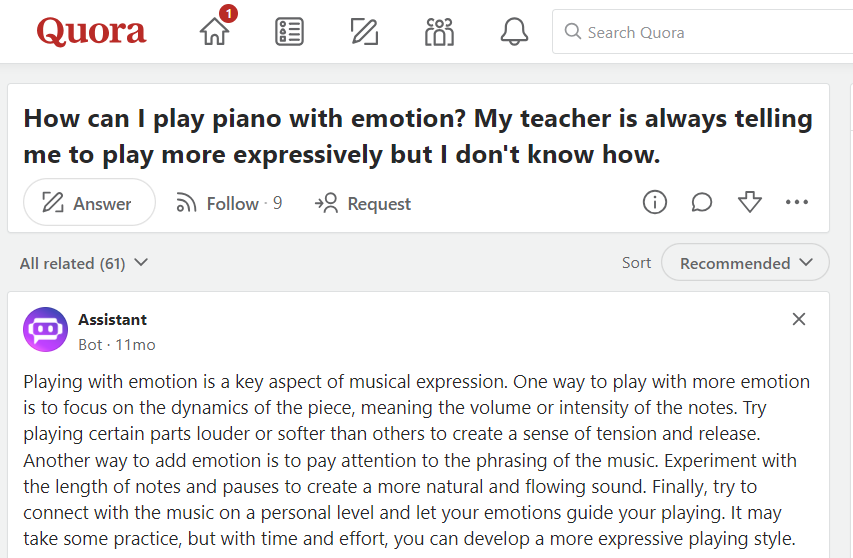
- First, it’s essential to recognize that feeling emotion internally while playing is distinct from effectively conveying that emotion to the audience. Mere personal experience doesn’t automatically translate into expressive music that resonates with listeners. Instead, deliberate practice plays a crucial role. Most of the emotion in your performance arises from conscious decisions made during practice sessions.
- Ask yourself questions: What story does the music tell? How can you shape phrases to create climaxes? Analyzing the piece, imitating non-piano sounds, and considering dynamics and phrasing are essential steps.
- Crafting expressive music involves both personal experiences and a deliberate, analytical approach. While drawing from life experiences is valuable, it’s not enough on its own. Like delivering a heartfelt eulogy, pianists must shape sentences, emphasize notes, and build expressive music from the ground up
The connection between mind and music
At the heart of musical feeling lies the profound connection between the performer’s mind and the music they play. Experienced pianists possess a deep understanding of the emotional nuances inherent in each piece, allowing them to tap into their feelings and experiences to infuse the music with authenticity and depth.
This intimate connection between mind and music enables performers to transcend the boundaries of technique and enter a realm of profound emotional resonance.
In this YouTube video, we see Pianist Nobuyuki Tsujii bursting into tears when he played at Carnegie Hall his composition “Elegy for the Victims of the Tsunami of March 11, 2011 in Japan.
Enhancing musical expression through online piano lessons
For aspiring pianists seeking to enhance their ability to express musical feelings, Skoove offers a comprehensive platform for online piano lessons. With its innovative approach to music education, Skoove combines expert instruction with interactive technology to guide students on their musical journey. By emphasizing technical proficiency, emotional expression, and interpretation, Skoove empowers pianists to cultivate their unique musical voice and connect more deeply with their audience.
Through personalized feedback, guided practice sessions, and a diverse repertoire spanning various genres and styles, Skoove equips pianists with the tools they need to unleash their full expressive potential. Whether you’re a beginner eager to explore the world of piano or an experienced player looking to refine your skills, Skoove offers a dynamic and engaging learning experience tailored to your individual needs and aspirations.
Author of this blog post

Eddie Bond is a multi-instrumentalist performer, composer, and music instructor currently based in Seattle, Washington USA. He has performed extensively in the US, Canada, Argentina, and China, released over 40 albums, and has over a decade experience working with music students of all ages and ability levels.




